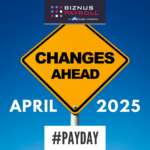We have been really impressed with Biznus Payroll. We find the staff helpful and knowledgeable and their payroll service has been invaluable to our business. We would definitely recommend them to others
K HerdWhether contact is made by email or phone, communication and service is always efficient and professional
J KingExcellent, reliable and knowledgeable company
J SmithHelps make life easier
S WakefieldWe moved our payroll to Biznus Payroll shortly after they started. The team at Biznus Payroll have given us a reliable, economical and hassle-free payroll service since then
R DevereuxI am very pleased with the service we receive from Biznus Payroll. We just send over the timesheets and they do the rest including calculating such things as SSP and SMP, even processing the BACS payments to our employees. The payslips and reports are posted back to us, usually on the same day but the next at latest. All HMRC returns are taken care of and they will even deal with those horrible letters we all get from HMRC occasionally. I don’t know how we coped without them!
E HollowaySo very pleased all of that our workplace pension is now sorted and my life has instantly been made easier.
Thank you very much.
K Patmore| Cookie | Description |
|---|---|
| __cf_bm | This cookie, set by Cloudflare, is used to support Cloudflare Bot Management. |
| cookielawinfo-checkbox-analytics | This cookie is set by GDPR Cookie Consent plugin. The purpose of this cookie is to check whether or not the user has given the consent to the usage of cookies under the category 'Analytics'. |
| cookielawinfo-checkbox-necessary | This cookie is set by GDPR Cookie Consent plugin. The cookies is used to store the user consent for the cookies in the category "Necessary". |
| cookielawinfo-checkbox-non-necessary | This cookie is set by GDPR Cookie Consent plugin. The cookies is used to store the user consent for the cookies in the category "Non Necessary". |
| cookielawinfo-checkbox-performance | This cookie is set by GDPR Cookie Consent plugin. The purpose of this cookie is to check whether or not the user has given the consent to the usage of cookies under the category 'Performance'. |
| CookieLawInfoConsent | CookieYes sets this cookie to record the default button state of the corresponding category and the status of CCPA. It works only in coordination with the primary cookie. |
| viewed_cookie_policy | The cookie is set by the GDPR Cookie Consent plugin and is used to store whether or not user has consented to the use of cookies. It does not store any personal data. |
| vuid | Vimeo installs this cookie to collect tracking information by setting a unique ID to embed videos on the website. |
| Cookie | Description |
|---|---|
| _ga | This cookie is installed by Google Analytics. The cookie is used to calculate visitor, session, camapign data and keep track of site usage for the site's analytics report. The cookies store information anonymously and assigns a randoly generated number to identify unique visitors. |
| _ga_* | Google Analytics sets this cookie to store and count page views. |
| _gat_gtag_UA_* | Google Analytics sets this cookie to store a unique user ID. |
| _gat_gtag_UA_72276411_1 | Google uses this cookie to distinguish users. |
| _gid | This cookie is installed by Google Analytics. The cookie is used to store information of how visitors use a website and helps in creating an analytics report of how the wbsite is doing. The data collected including the number visitors, the source where they have come from, and the pages viisted in an anonymous form. |
| Cookie | Description |
|---|---|
| _gat | This cookies is installed by Google Universal Analytics to throttle the request rate to limit the colllection of data on high traffic sites. |
| Cookie | Duration | Description |
|---|---|---|
| _cfuvid | session | Description is currently not available. |


